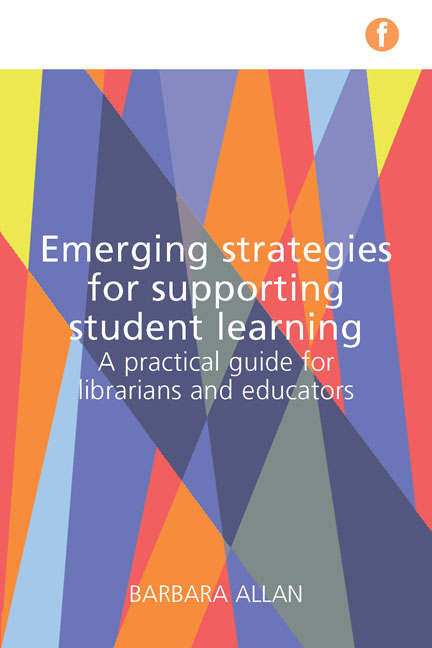Book contents
- Frontmatter
- Contents
- Figures and tables
- Acknowledgements
- 1 Introduction
- 2 Working with students
- 3 Digital literacies
- 4 Employability
- 5 Approaches to learning and teaching
- 6 Learning and teaching activities
- 7 Making it happen
- 8 Designing face-to-face, blended and online courses
- 9 Delivering learning experiences
- 10 Evaluation of learning and teaching activities and courses
- 11 Lifelong professional development
- Index
10 - Evaluation of learning and teaching activities and courses
Published online by Cambridge University Press: 08 June 2018
- Frontmatter
- Contents
- Figures and tables
- Acknowledgements
- 1 Introduction
- 2 Working with students
- 3 Digital literacies
- 4 Employability
- 5 Approaches to learning and teaching
- 6 Learning and teaching activities
- 7 Making it happen
- 8 Designing face-to-face, blended and online courses
- 9 Delivering learning experiences
- 10 Evaluation of learning and teaching activities and courses
- 11 Lifelong professional development
- Index
Summary
Introduction
In many countries student experience and satisfaction are high on the agenda of universities and colleges, and students are regularly asked for their feedback on all aspects of their academic life. The results of this feedback are used to inform change and improvements, and as performance measures within institutions; summarized results may be displayed in league tables.
The provision of library and information services to students is regularly monitored through a range of quality assurance and enhancement processes. Library and information workers who are module leaders or tutors on creditbearing modules are likely to be involved in specific course-related quality assurance and enhancement processes, such as annual monitoring, so it is important for them to understand their institutional policy and practices.
In contrast, some of the activities of library and information workers, e.g. workshops, online courses, giving one-to-one support, may not be explicitly included in the institutional quality assurance and enhancement processes that monitor courses and modules. It is therefore important for library and information service staff to think about how they wish to evaluate those of their activities that directly support student learning and to have appropriate systems in place.
Different countries have their own systems of quality control and enhancement and this chapter provides a brief overview of these processes in the UK. Many of the underlying principles are the same in higher education in other countries, although their organization may be based on factors such as geography, type of institution and type of course, and the evaluation may be led by government or other agencies.
The main part of this chapter is concerned with the evaluation of the impact of learning and teaching activities, e.g. short courses, online courses, and blended learning courses. It starts with a summary of some of the research findings of Schilling and Applegate (2012), which gives an insight into important distinctions when measuring students’ attitudes, learning or behaviour. The next section looks at practical approaches to evaluating the impact of learning and teaching activities and covers a wide range of methods, from student assignments through to tests, and gives case studies that demonstrate the value of using a number of tools together when evaluating these interventions.
- Type
- Chapter
- Information
- Emerging Strategies for Supporting Student LearningA Practical Guide for Librarians and Educators, pp. 137 - 152Publisher: FacetPrint publication year: 2016



